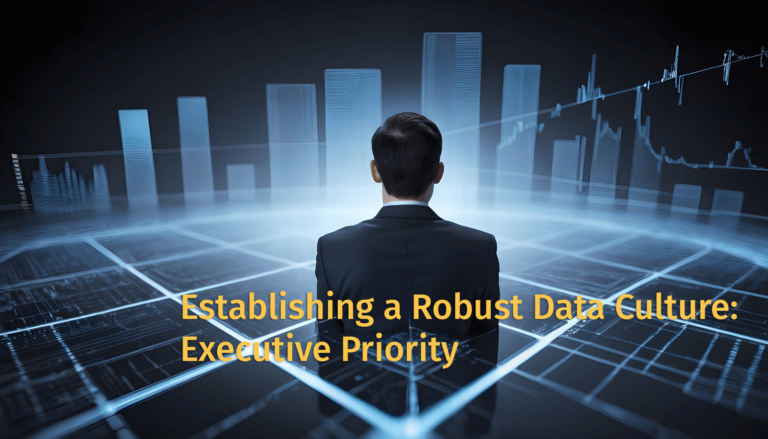
During the year 2023, the business environment encountered a multitude of unanticipated obstacles. While businesses competed to incorporate innovative technologies like generative AI into their strategies, they were also confronted with macroeconomic factors that influenced each choice. In light of this environment, establishing a robust data culture ceased to be an option and became a strategic necessity. Successful organizations were those led by data-centric individuals who effectively utilized innovation and agility to attain a competitive advantage. Individuals who failed to do so were placed in an entirely different situation.
A data-centric perspective encompasses more than mere data integration into routine business operations. It involves cultivating a culture in which each member of the team, irrespective of position, recognizes the significance of data. Recent research indicates that 89% of organizations with strong data leadership achieved or surpassed their revenue objectives in 2023, demonstrating the evident advantages.
Leadership Is Essential to the Formation of a Data Culture
Effective executive support is essential for financing and prioritizing data initiatives that contribute to the development of a data-centric culture within an organization. Data literacy programs and similar initiatives provide employees with essential data skills that are critical for cultivating such a culture. However, the success of these programs is frequently hindered in the absence of strong leadership support. According to the same research conducted by Alation, a mere 15 percent of organizations that possess data leadership that is moderate or feeble effectively incorporate data literacy into the majority of departments or the entire organization. This is in stark contrast to the adoption rate of 61 percent observed in organizations that possess robust data leadership.
Furthermore, effective data leadership transcends mere endorsement and necessitates the active participation and demonstration of executives in data culture initiatives. An example of this is when an executive dedicates a portion of her demanding schedule to participate in data literacy training. This action conveys a significantly stronger message to her team than if she were to merely advise others to make this training a priority. The leaders’ active involvement in this matter highlights the significance of data literacy and showcases their dedication to establishing an organization-wide culture that is guided by data.
Proficient data leaders convert data into practical insights.
However, in order to be a formidable data leader, your data must be actionable and consumable. Despite the fact that data literacy frequently alienates individuals, data proficiency is rapidly becoming the deciding factor in the success or failure of an organization. In contemporary digital environments, the concept of data literacy transcends the domains of IT specialists and data scientists to incorporate all personnel, including those occupying nontechnical positions.
Thus, the concept of data literacy extends beyond mere comprehension of data and encompasses the ability to convert data into practical insights that influence decision-making. Organizations that effectively develop consumable data products and enable both technical and nontechnical personnel to rely on reliable information for day-to-day decision-making will have established a data culture by 2024. Such organizations will experience accelerated innovation, surpassed revenue targets, competitive advantage, and improved customer service.
Developing a data culture does not occur overnight. Determining data leaders, investing in data literacy training, establishing a conducive environment for data-driven decision-making, and selecting appropriate tools are all components of a strategic approach that are necessary for this endeavor. Additionally, the returns—increased efficiency, enhanced performance, and well-informed decision-making—are well worth the effort, despite the process’s apparent difficulty.
The transition towards a culture that is driven by data is not devoid of obstacles. Ongoing concerns regarding data privacy, security, and ethics underscore the need for strong governance frameworks. Furthermore, in order to fully capitalize on the advantages of adopting a data-centric strategy, organizations must guarantee that their data is accessible, precise, and of superior quality. Failing to address this obstacle may compromise the fundamental pillars of a data-driven organizational culture.
A strong data culture is widely acknowledged to have a substantial positive impact on the decision-making procedures employed by an organization. By cultivating such a culture, an organization creates an atmosphere in which data is consistently and extensively utilized to increase the efficiency and effectiveness of the business.
The journey towards establishing a data-centric culture is ongoing. In tandem with the emergence of new technologies and the evolution of business environments, the significance of data within organizations will also progress. Nevertheless, it is indisputable that in 2024 and beyond, those organizations that place a high priority on establishing a robust data culture will be at the forefront, effectively converting present market obstacles into prospects for expansion and achievement.